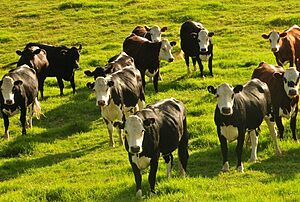Summarised by Centrist
Emeritus Professor David Norton has called for changes to New Zealand’s Emissions Trading Scheme (ETS) to better support native biodiversity on farms, arguing that current policies overly favour pine plantations at the expense of native ecosystems.
Speaking at a Beef + Lamb NZ field day, Norton highlighted the financial strain biodiversity projects place on farmers and the need for incentives to make such efforts viable.
Norton criticised carbon farming of pine trees as a “get-rich-quick scheme” that ignores long-term liabilities like pests, fire risks, and the collapse of carbon stores in decades to come.
He called for investment in native forests, which offer greater biodiversity and sustainability benefits but currently lack sufficient financial support. Some voluntary carbon markets and council grants exist, but funding remains limited.
Farmers manage nearly 3 million hectares of native vegetation, accounting for 25% of New Zealand’s total. Norton said biodiversity provides practical benefits, including shelter for livestock, aesthetic value, honey and timber income, and improved market access.
He noted that environmental demands from overseas buyers, like Tesco and Nestlé, are pushing New Zealand producers to adopt higher biodiversity standards.
“Farmers are custodians of some amazing examples of biodiversity,” he said, urging greater government support to ensure these ecosystems thrive for future generations.



















